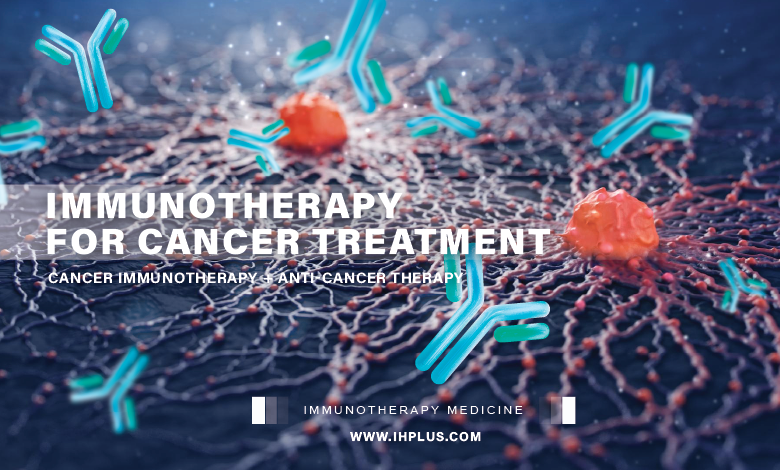
Immunotherapy For Cancer Treatment: Empowering the Body's Defenses in the Battle Against Cancer
Cancer has been a formidable adversary in the realm of medicine for decades, impacting countless lives around the world. Traditional cancer treatments, such as surgery, chemotherapy, and radiation therapy, have shown efficacy in combating the disease. However, they often come with debilitating side effects and may not provide a definitive cure for many patients. In recent years, a new frontier in cancer treatment has emerged – immunotherapy. This groundbreaking approach harnesses the body’s own immune system to recognize, target, and destroy cancer cells, offering a promising avenue for more effective and personalized cancer treatment. In this article, we will explore the revolutionary field of immune therapy for cancer treatment and how it is transforming the landscape of oncology.
Immunotherapy, also known as biologic therapy, is a type of cancer treatment that utilizes the body’s immune system to fight cancer cells. Unlike traditional treatments that directly attack cancer cells, immunotherapy focuses on boosting the immune system’s ability to identify and destroy cancerous cells more effectively. This approach capitalizes on the immune system’s natural defense mechanisms, thereby providing a targeted and personalized treatment option for cancer patients.
The immune system is a complex network of cells, tissues, and organs that work together to defend the body against foreign invaders, such as viruses, bacteria, and cancer cells. When cancer arises, the immune system is often the first line of defense, attempting to recognize and destroy the abnormal cells. However, cancer cells can be clever and develop mechanisms to evade the immune system’s surveillance.
Types of Immunotherapy for Cancer:
Several types of immunotherapy approaches are being explored for cancer treatment, each with its unique mechanisms and targets. Some of the most prominent types include:
1. Checkpoint Inhibitors: Checkpoint inhibitors are drugs that block specific proteins on immune cells or cancer cells, known as checkpoints. By doing so, they remove the brakes on the immune system, allowing it to mount a more robust attack against cancer cells. Drugs like pembrolizumab and nivolumab have shown remarkable success in treating various cancers, including melanoma, lung cancer, and bladder cancer.
2. Adoptive T Cell Therapy: This cutting-edge approach involves the extraction of T cells from the patient’s blood and their genetic modification to enhance their cancer-targeting abilities. The modified T cells are then infused back into the patient to initiate a more potent attack on cancer cells. CAR-T cell therapy, a type of adoptive T cell therapy, has demonstrated remarkable results in treating certain blood cancers like leukemia and lymphoma.
3. Cancer Vaccines: Cancer vaccines aim to stimulate the immune system to recognize cancer cells as foreign invaders and mount an immune response against them. These vaccines can be used to prevent cancer development or as a treatment to boost the immune system’s ability to attack existing cancer cells.
4. Monoclonal Antibodies: Monoclonal antibodies are engineered proteins that can specifically target certain proteins on cancer cells. By binding to these proteins, monoclonal antibodies can mark cancer cells for destruction by the immune system or deliver cancer-killing substances directly to the cancer cells.
One of the most exciting aspects of immunotherapy is its potential to be used in combination with other cancer treatments. Combinations of immunotherapy with traditional treatments like chemotherapy or radiation therapy have shown significant promise in increasing treatment effectiveness and improving patient outcomes. Additionally, combining different types of immunotherapies can create a synergistic effect, enhancing the immune system’s ability to target and destroy cancer cells.
NK Cell Therapy:
Among the various immunotherapeutic strategies, Natural Killer (NK) cell therapy stands out as a potent and promising approach. NK cells are a vital component of the innate immune system, playing a pivotal role in recognizing and eliminating abnormal cells, including cancer cells. These specialized white blood cells possess a unique ability to distinguish between healthy and malignant cells based on specific surface markers. When NK cells identify cancer cells, they initiate a targeted attack, leading to cell death through various mechanisms.
In cancer patients, the activity of NK cells may be compromised, allowing cancer cells to evade immune detection and destruction. NK cell therapy aims to overcome this limitation by bolstering the patient’s NK cell population, enhancing their cytotoxic capabilities, and improving their tumor-targeting abilities.
How NK Cell Therapy Works:
NK cell therapy involves the isolation and expansion of NK cells from either the patient’s own blood (autologous) or a healthy donor’s blood (allogeneic). The extracted NK cells are then amplified in the laboratory to create a sufficient quantity for therapeutic purposes. These activated NK cells are subsequently infused back into the patient’s bloodstream, where they can circulate throughout the body and recognize and destroy cancer cells.
Advantages of NK Cell Therapy:
NK cell therapy offers several advantages that set it apart from other immunotherapies and traditional cancer treatments:
- Specificity: NK cells can identify cancer cells through surface markers without causing damage to healthy cells, leading to fewer side effects compared to traditional treatments like chemotherapy.
- Non-MHC restricted: Unlike T cells, NK cells do not require major histocompatibility complex (MHC) matching, making allogeneic NK cell therapy a more feasible option for patients lacking matched donors.
- Lower risk of graft-versus-host disease (GVHD): NK cells have a reduced risk of causing GVHD, a common complication associated with other immune cell-based therapies.
- Potential for combination therapies: NK cell therapy can be combined with other immunotherapies or conventional treatments to create a synergistic effect, boosting treatment efficacy.
Immunotherapy represents a groundbreaking frontier in the battle against cancer. By empowering the body’s natural defenses, this transformative approach offers a targeted and personalized treatment option with reduced side effects. The success stories in immunotherapy are a testament to its potential in revolutionizing cancer treatment and providing hope to patients around the world. As research and innovation continue to advance, the future of immunotherapy shines brighter than ever, offering a beacon of hope for patients and furthering the fight against cancer.
YOU MAY BE INTERESTED..
Our treatment treated at IntelliHealthPlus Clinic By StemCells21
Book a FREE Consultation Now
IH+ Contact Form
Contact our international team of medical professionals with language services available in English, Thai, Arabic, Chinese, Spanish, and Russian.
Please indicate your preferred language and we will do our best to accommodate your request.

